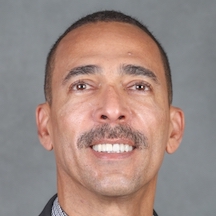
by Harold Young
Multi-directional pressures and demands from administrations, departments, students, and parents are universal in academic life. What is different for faculty of color is the racist micro-aggressions encountered while going about the tasks of engaging a diverse student body and fulfilling other responsibilities in a challenging social and political environment. We are charged with supporting our students who also share these experiences.
In Blackballed: The Black and White Politics of Race on America’s Campuses (St. Martin’s Press, 2016), Lawrence Ross points out that it never seems to matter when or how often we bear witness to these realities, the incidents are marginalized as being isolated, or the acts of “one bad apple”.
My goal here is to share some divergent experiences to reinforce to others that we, as faculty of color, are neither alone nor insane, or even overly-sensitive. Here are a few examples of what I have personally encountered:
* During a faculty orientation, the facilitator suggested the primary way of recognizing when a student was experiencing high anxiety or having a panic attack in class was a change in complexion. This is a “curious” indicator considering that approximately 20 percent of our students identify as Black or African American. The facilitator seemed completely oblivious to the inappropriateness of that indicator for those who would have no apparent physical change in complexion.
* Following a controversial police shooting of unarmed Black men last year, I participated in two public forums which included law enforcement. A police chief opened his remarks by referring to Ferguson, Missouri, as the start of the problem between law enforcement and the Black community. When I pointed out that it is a 400-year-old problem, he immediately apologized and backtracked – standard responses when caught marginalizing and isolating the issue. Many attendees were obviously traumatized by the recent events and expressed fear of any possible encounter with law enforcement.
* In another forum, a White colleague expressed his complete understanding of racial discrimination because he has had a ponytail since the 1960s and 1970s and often felt rejected by some people. It never seemed to occur to him that while he could choose to cut his hair, skin color is not a choice.
* I witnessed a Black female student recounting her anxiety about being judged for her hair style choice: (a) If she went “natural” it may be interpreted as making a radical statement by the mainstream community; (b) a hair wrap might be critiqued as being “Aunt Jemima” and (c) wigs and other forms of “fake” hair might be interpreted as an identity crisis or trying to fit in. Her words to her classmate were literally, “you just don’t understand what Black women go through!”
* Finally, I attended a social gathering at a recent political science conference. Not recognizing anyone, I introduced myself to two colleagues and took a sip of wine. Seconds later a gentleman asked to join the table, introduced himself to my colleagues, then on looked directly into my face and turned his head without introducing himself. Make what you will of that!
As faculty of color, we must manage ourselves, encourage our students, and promote learning in sometimes less than ideal social climates. These tasks are often complicated by the denial or minimizing of the problems faced by segments of university communities and the society as a whole. We have to carefully choose when, where and how to respond to incoming fire lest we be labelled thin-skinned and aggressive. There are no simple answers, but know that you are not in this alone. As positive outcomes are dependent on multiple veto players, it is incumbent upon our personal leadership and the leadership of our colleagues, regardless of racial identity, to acknowledge these societal problems and constructively engage to develop strategic approaches to support one another. We then must follow through, and repeat!
 Harold Young is an assistant professor at Austin Peay State University in Clarksville, Tennessee. His research area is Public Law and he examines an American and comparative perspective on judicial institutional changes and decision making. Earlier, he was a social worker, a health communications project manager, and an attorney-at-law. He can be reached via email at [email protected].
Harold Young is an assistant professor at Austin Peay State University in Clarksville, Tennessee. His research area is Public Law and he examines an American and comparative perspective on judicial institutional changes and decision making. Earlier, he was a social worker, a health communications project manager, and an attorney-at-law. He can be reached via email at [email protected].

Professor Young,
Thank you for sharing this feature–given the socio-political landscape of our society today–it is critical that we galvanize carefully and strategically. Additionally, it is hoped that we see the value in heeding self-care to guard and fortify our emotional and physical well-being in the interim.
Felita Y. Singleton, MS, QMHP
Director of Student Veteran Services
Portland State University
Ms. Singleton,
You words resonate! We need to be thick skinned but not callous and we need to attend to ourselves so we can tent to out students.
Harry
Assitant Professor
APSU
Professor Young, Thank you for sharing this piece so that others who are members of the Global Majority can remember they are not alone. As a white woman ally, my nascent understanding is enriched each time I hear of personal stories and examples of racism and micro-aggression. Thank you for elevating my ability to really see these behaviors in myself so that I may begin to contribute to the solution through strategic use of my unearned white privilege.
Hi Ms. Barksdale, thanks for the kind words. It takes each to teach one……
Professor Young,
I appreciate you highlighting the various qualities that must be cultivated and consistently practiced of an educator of color in any learning environment.
As a Black high school teacher at a high poverty school that has a student body of 94 percent Black with a mirrored faculty and staff, I too, am faced with having to tread lightly and be thick-skinned. My struggle is breaking and building social barries that inhibits tolerence and empathy.
My best practice has been not respond to demeaning and and dismissive behaviors in kind, but to model positive behaviors and seize opportunities for teachable moments – even amongst my colleagues.
Hi Mirra, Thanks for doing the hard work in a difficult environment.
Best, Harry
I was recently introduced to the term “microaggressions.” But, it’s a feeling I am all too accustomed to. Your last example is the one that prompted my response. It’s the “am I crazy, or did they just…” feeling. It is that “requirement” I often feel to let it go that piles up the microaggressions. Then, when I address it, even without mentioning race, I have heard that “I’m always bringing up race.” I don’t think some of our colleagues realize that “bringing up race” is part of a healthy dialogue. If I continually stepped on your toe, how long before you address it?
Hi Mr. Wright, you are on point. We should not waiver for the thankless task of addressing racism, inequity and injustice.
Keep on keeping on!
Harry
THANK YOU FOR SHARING WHAT WE ARE FEELING AND THAT IT IS REAL. THERE ARE SO MANY EXAMPLES OF THIS THAT IT IS TIRING .( RACIAL FATIGUE, IF YOU WILL) MY HUSBAND & I LIVE IN AN UPSCALE SUBURBAN AREA FOR THE LAST 44 YEARS .RECENTLY A NEW WOMAN AT THE LOCAL SUPERMARKET ( BAGS GROCERIES) ASKED HOW DID I LIKE THE APARTMENTS IN THE AREA ? SHE LOOKED AT US WITH TOTAL SHOCK, WHEN I SAID “WE WOULDN’T KNOW; WE LIVE IN THE HOMES ON THE HILL. AFTER ALL TRUMP SAID ” BLACK PEOPLE YOU HAVE NOTHING; WHAT DO YOU HAVE TO LOSE” AND THEY BELIEVE IT !! YOURS IN THE STRUGGLE… KEEP UP THE GREAT WORK !!!